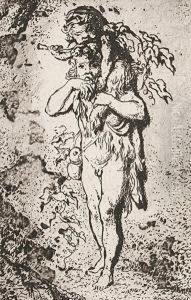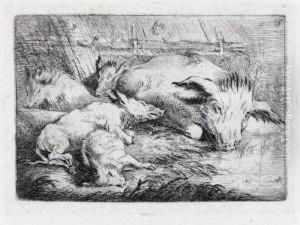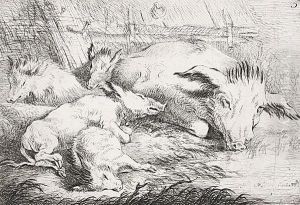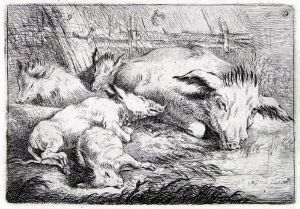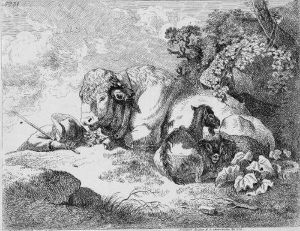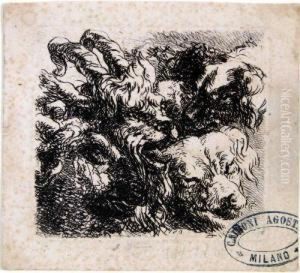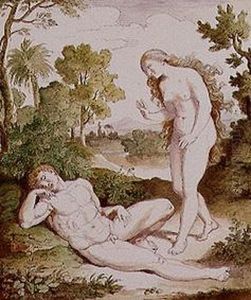Friedrich Muller Paintings
Friedrich Müller, often known by his pseudonym Maler Müller (Painter Müller), was a multifaceted German artist and poet, born on January 13, 1749, in Kreuznach, now Bad Kreuznach, Germany. His contributions span across poetry, drama, and visual arts, making him a unique figure in the German Romantic movement. Despite his nickname, which emphasizes his painting skills, Müller was equally influential in literature, embodying the Romantic era's ideals of unifying the arts.
Müller initially embarked on a career in painting, studying and working in this field before his literary talents began to emerge. His literary oeuvre includes both poetry and dramatic works, characterized by a deep engagement with nature, individual emotion, and the exploration of human passions, aligning him with the broader Romantic movement in Europe. One of his most notable works is the pastoral drama 'Fausts Leben dramatisiert' (Faust's Life Dramatized), which reflects the Romantic fascination with the Faust legend, predating Goethe's famous version.
Throughout his life, Müller maintained an interest in the visual arts, but his lasting legacy is more significantly tied to his literary contributions. His works often explored themes of love, freedom, and the sublime in nature, resonating with the Romantic spirit of his time. Despite his talent and contributions, Müller did not achieve the same level of fame as some of his contemporaries, such as Goethe or Schiller, but he is remembered for his passionate expression of Romantic ideals.
Friedrich Müller died on April 23, 1825, in Rome, Italy, where he had spent the latter part of his life. His death marked the end of a career that, while not as celebrated as some of his peers, significantly contributed to the German Romantic movement. Today, Müller is regarded as an important, though somewhat overlooked, figure in the history of German art and literature, embodying the interdisciplinary spirit that defined the era.
